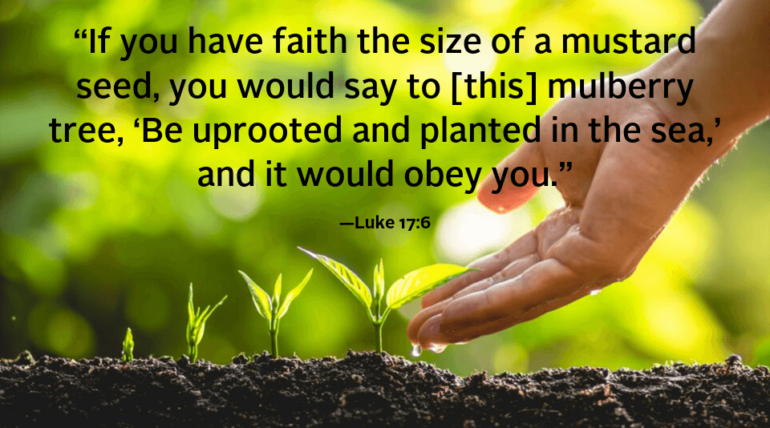16th SUNDAY A
Matthew began last Sunday, and continues today, a series of parables about the ‘kingdom of heaven.’ He tells us that the kingdom is already happening but hidden in the midst of people’s ordinary everyday surroundings. It arrives neither in apocalyptic thunder and lightning nor in a grand act of God that nobody can resist, but in the same way that wheat or mustard seeds grow. “The reign of God happens in silence, grows in secret, in what is little, in what is inconspicuous, because God wants the old world to transform itself freely into God’s reign” – Gerhard Lohfink, JESUS OF NAZARETH, 109. The kingdom is like a silent revolution, like growth. We need eyes to see and ears to hear.
Jesus is God’s revelation to us and our insight into God. He doesn’t try to reduce God to a neat formula; if he could have packaged God in such a clear way, he would have. God’s kingdom is not easily summed up. When he wants to speak about the ways of God Jesus does so in parables – not formulas. Parables open our imagination. They leap across the ages and speak to 21st century listeners – to our fears, hopes, dreams, ambitions and yearnings. They also speak to our blindness, dullness and our indifference to God’s ways. We wonder why bad things happen to good people, why Jesus’ followers look so weak in our world – why good doesn’t triumph nearly enough, while evil is flush with winnings.
A mature faith thinks differently. Listening deepens. It doesn’t calculate. Issues diminish in importance. We begin to let go of subject/object – “us and them” polarised thinking, and find room for others and their point of view, as well as for God and God’s view. A maturing faith becomes more aware of God’s ways, God’s perspective, God’s loving mercy for people whether saint or sinner. This way of thinking and seeing gives way to a more inclusive, contemplative outlook. Our consciousness becomes stabilised beyond the subject/object split. Pope Francis showed it to a surprised world when he was asked about LGBT marriage, and said “Who am I to judge?” For the mature of faith the heart becomes the instrument of spiritual perception. ‘Blessed are the pure of heart, for they shall see God.’
When we were younger we were told to pull out our ‘weeds.’ Yet Jesus says ”Let the weeds and the wheat both grow together.” Each one of us is a mixed bag, a field of wheat and weeds, of good and bad together. “The Spirit comes to help us in our weakness, giving us patience, gentleness and kindness with ourselves and our faults, and with everybody else” – Gal 5: 22. Much of our spiritual growth is learning to love, learning to accept the weeds in our lives and in others. To really love someone is to accept that person despite, and sometimes even because of their faults. Love says, “I know your defects and blemishes and I love you anyway.” Only the mind of Christ who reconciled all things in himself knows fully how to do that – cf. Colossians 1: 19-20. The Spirit leads us into all truth, the truth that lies beyond subject/object polarised thinking – cf. John 16:15.
Fr QQ – 07/20/2023




